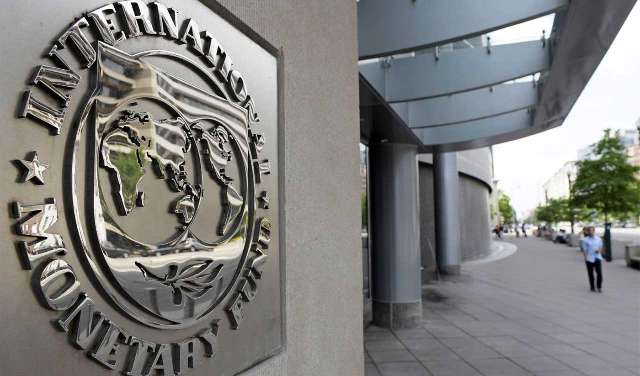The International Monetary Fund (IMF) has stated that dysfunctional global supply chains leave economies less able to adapt to possible resurgences of the pandemic.
It said highly occupied ports disrupt the flow of goods needed to adapt to changing public health conditions.
The IMF said this in a report, titled ‘World Economic Outlook International Monetary Fund Update: Rising Caseloads, a Disrupted Recovery, and Higher Inflation’.
According to it, global trade is expected to stabilize in 2022 and 2023 and align with the pace of expansion.
It said, “Global trade is expected to moderate in 2022 and 2023, in line with the overall pace of the expansion.
“Assuming that the pandemic eases over 2022, supply chain problems are expected to abate later in the year. The accompanying moderation in global goods demand will also help reduce imbalances. Cross-border services trade – particularly tourism – is expected to remain subdued.”
According to the IMF, supply chains shifted towards goods consumption overloading global supply chain networks during the pandemic.
It said, “The shift toward goods consumption, particularly in advanced economies, overloaded global supply chain networks during the pandemic.
“This problem was compounded by pandemic-related impediments to transportation and staffing, as well as by the inherently fragile nature of just-in-time logistics and lean inventories. The resulting disruption to global trade led to shortages and higher prices for imported consumer goods.
“Disruptions in the United States have been particularly severe, consistent with the larger switch into goods consumption. IMF staff analysis suggests that supply disruptions shaved 0.5–1.0 percentage points off global GDP growth in 2021 while adding 1.0 percentage points to core inflation.
“Although international shipping fleets have limited spare capacity, the bottlenecks are often on land, with trucking and other services unable to move freight off the docks faster than new ships can bring it in.
“These supply chain disruptions will eventually ease, not least because the composition of demand is likely to shift back to services (households can buy only so many durable goods). The baseline assumes supply-demand imbalances will wane over the course of 2022. But the longer they persist, the more likely they are to feed through to expectations of higher future prices and the larger the risk to the world economy.”
It added that the impact of the Omicron variant might limit the efficiency of ports, add to shipping problems, and delay the rebalancing of consumer demand from goods to services further aggravating supply-demand imbalances.
